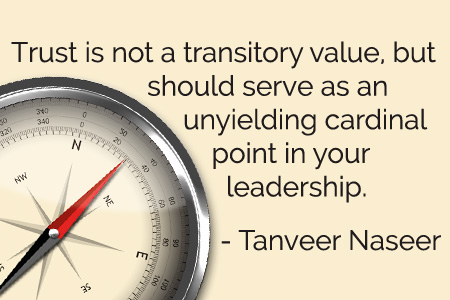Over the past several weeks, there has been a recurring theme in the news of organizations being caught at their worst and with it, how often leaders drop the ball in owning up to these failures incurred by those they lead.
While the most talked-about examples have been Pepsi’s tone-deaf commercial and United Airlines’ abhorrent treatment of one of their passengers, I want to share the story of another organization’s colossal misstep in order to illustrate how the disconnect leaders engender between an organization’s efforts and those they are meant to serve can have a far greater and deleterious impact than we might realize.
Perhaps best known internationally as the creator of the Ski-Doo snowmobile and Sea-Doo personal watercraft, here in the province of Quebec, Bombardier holds a storied and revered place as a shining example of Quebecois entrepreneurship, business acumen, and high-tech talent.
Or at least they did until it was revealed that the company had given its executives a 50% pay hike after laying off 11 000 employees and asking for over $1 billion in bailout funds from the provincial and federal government in order to help keep them afloat.
Since the news broke, Bombardier’s image in the province has taken a serious hit and the company has been subject to numerous protests outside their headquarters here in Montreal. Bombardier has since attempted to save face by announcing that they would defer almost half of the proposed executive compensation until 2020.
But by then it was too late as even now, more than half of Quebecers say they have a negative impression of this once well-regarded company, a reality that will not only impact their ability to garner public funds in the future, but also the way their employees view their organization and their contributions to it.
Now, in the case of Pepsi and United Airlines, the typical focus tends to be on them being examples of failures in crisis communication. And yet, while these assessments are correct, they also create a false impression that these incidents are temporal in nature, evoking the old adage of how time heals all wounds.
But the real lesson we should be taking from each of these examples is not simply what and how we communicate following a clear violation of what we claim to be our organization’s vision and/or values, but of how this kind of disconnect in our leadership can irreparably damage the trust we’ve earned – not just with our customer base, but amongst those we have the responsibility to lead.
Through the examples of Pepsi, United Airlines, and Bombardier, we not only see first-hand what happens when we fail to honour what we claim to stand for, but also an important truth about the nature of trust in leadership. Namely, that trust is not a transitory value, but should serve as an unyielding cardinal point in your leadership [![]() Share on Twitter].
Share on Twitter].
It’s a fact that both the CEO at United Airlines and Bombardier have failed to understand given how their first response in the face of public outrage over what happened under their watch was to sidestep any real responsibility and in the case of Bombardier, go so far as to justify it as being the norm.
What both of these leaders have clearly failed to learn is that trust is more than a noble virtue – it’s a promise we make to others that we’ll do them no harm [![]() Share on Twitter].
Share on Twitter].
Of course, while these examples demonstrate just how quickly leaders can destroy the level of trust an organization has – not just amongst its employees but also with those they serve and/or represent – there is an even larger issue being revealed through these epic failures and that is a loss of integrity in leadership.
Indeed, in each case, we see a glaring omission between the actions of these CEOs and what real leaders are expected to do. Namely, leaders with integrity do what’s right for those they lead – and not just when others are looking [![]() Share on Twitter].
Share on Twitter].
That’s why our character is defined by the level of integrity we display – it’s not so much what you say about yourself and what you supposedly represent, but it’s the actions and behaviours you take that truly define for others who you really are and what you actually stand for.
Indeed, having integrity demonstrates that the actions you take are driven by something more than self-serving interests.
In other words, integrity is what ensures we remain committed to what matters – both for ourselves and those we lead [![]() Share on Twitter].
Share on Twitter].
Granted, anyone can claim that they are driven to provide some benefit to others. But while we can easily make such claims, it’s only when faced with the harsh glare of the public eye that we reveal our true intentions and focus.
It’s for this reason that Pepsi, United Airlines, and Bombardier will continue to be haunted by their public blunders, if not also serving as the punchline for late night talk show jokes.
Each of them has failed to recognize that integrity is critical for why people will follow you, as it demonstrates you’re someone others can trust [![]() Share on Twitter].
Share on Twitter].
And the only way we can build and sustain that sense of trust in our leadership comes from understanding that trust is built on the belief that leaders have the best interests of others at heart [![]() Share on Twitter].
Share on Twitter].
So here’s hoping the rest of us will learn from their missteps in making sure that we honour our roles as leaders by approaching it with integrity to not only foster trust, but to inspire and truly lead those under our care to succeed and thrive through our collective efforts.

